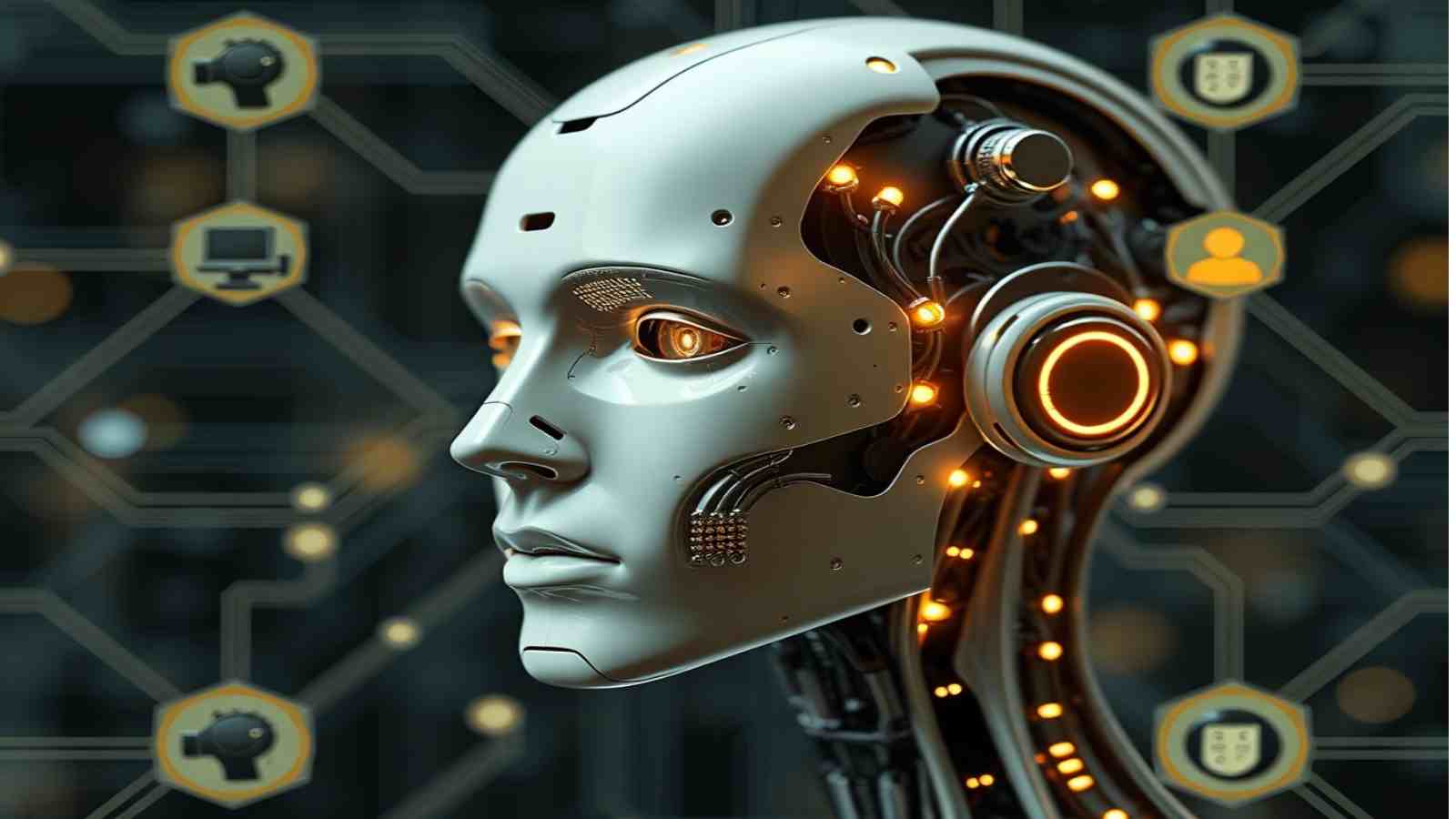Artificial Intelligence (AI) is revolutionizing how we interact with technology, transforming industries, and offering unprecedented opportunities for innovation. From automating repetitive tasks to enhancing customer service, AI’s potential applications are vast and varied. This guide will equip you with the knowledge and tools to create your AI for personal projects or professional ambitions.
What is AI: Definition and Capabilities
AI is the simulation of human intelligence in machines designed to think and learn like humans. It can perform tasks such as recognizing speech, making decisions, and translating languages. The core capabilities of AI include:

- Machine Learning (ML): Algorithms that enable computers to learn from and make predictions based on data.
- Natural Language Processing (NLP): The ability of machines to understand and interpret human language.
- Computer Vision: The capability of machines to interpret and make decisions based on visual input.
- Predictive Analytics: Using statistical algorithms and machine learning techniques to identify the likelihood of future outcomes based on historical data.
Building Blocks of AI: Algorithms and Data
AI systems rely on algorithms and large datasets to function effectively. Key components include:
- Algorithms: Step-by-step procedures or formulas for solving problems. Common AI algorithms include decision trees, neural networks, and support vector machines.
- Data: High-quality, labeled data is essential for training AI models. The more data you have, the better your AI will perform.
Tools for Creating AI: Software Options
For those with programming and machine learning skills, Python is a popular language for AI development due to its simplicity and extensive libraries. TensorFlow, developed by Google, is a powerful open-source platform for building and deploying machine learning models. Additional tools to consider include:
- Keras (a high-level neural networks API)
- PyTorch (a deep learning framework)
- Scikit-learn (a machine learning library)
Ethical Considerations in DIY AI

When creating AI, it’s crucial to consider the ethical implications. Data privacy, algorithmic bias, and the impact on employment must be addressed. Ensure that your AI projects adhere to ethical guidelines, respect user privacy, and strive for fairness and transparency.
Real-World Applications of DIY AI
AI can be applied to a wide range of projects and industries. Here are some specific applications you might consider:
- Chatbot for Customer Support: Develop an AI-powered chatbot to understand and respond to user queries in a human-like manner. This can enhance customer service by providing instant, accurate responses.
- Recommendation System for E-commerce: Create an AI system that suggests products based on user preferences and behavior. This can increase sales and improve user experience.
- Image Recognition Tool: Design an AI tool to identify and classify objects in images. Applications include security systems, healthcare diagnostics, and more.
- Predictive Model for Business Forecasting: Build an AI model that analyzes historical data to predict future sales, demand, or market trends. This can help businesses make informed decisions.
Learning Resources
To get started, you’ll need access to quality learning resources. Here are some recommendations:
- Python AI Tutorials: Websites like Real Python and Python.org offer comprehensive tutorials on AI development with Python.
- TensorFlow Basics: The official TensorFlow website provides extensive documentation and tutorials for beginners.
- AI Project Walkthroughs: Online platforms like Coursera, Udacity, and YouTube offer courses and video tutorials that guide you through real AI projects.
FAQs
Q: Do I need a strong background in programming to start creating AI?
A: While a background in programming can be beneficial, especially knowledge of languages like Python, many resources are available for beginners. Online courses, tutorials, and AI development platforms have made it more accessible for individuals with varying skill levels to get started.

Q: What is the best programming language for AI development?
A: Python is currently the most popular programming language for AI development due to its simplicity and the extensive range of libraries and frameworks available, such as TensorFlow, Keras, and PyTorch. However, other languages like R, Java, and C++ also play significant roles in AI development, depending on the project’s specific requirements.
Q: How important is data in AI creation?
A: Data is extremely crucial in AI development. High-quality, labeled data is necessary for training AI models effectively. The performance of an AI system is directly linked to the quantity and quality of the data it is trained on.
Q: Are there free resources available to learn and develop AI?
A: Yes, there are numerous free resources available. Websites like Coursera, edX, and YouTube offer comprehensive courses and tutorials. Additionally, many open-source tools and libraries like TensorFlow and Keras have extensive documentation to help you get started.
Q: How can I ensure that my DIY AI project is ethical?
A: To ensure your AI project adheres to ethical standards, it is important to consider data privacy, minimize algorithmic bias, and assess the broader impact of your AI on society. Always use data responsibly, ensure transparency in your algorithms, and aim to create fair and unbiased systems.
Q: Can I deploy AI models on mobile devices?
A: AI models can be deployed on mobile devices using frameworks like TensorFlow Lite for Android and iOS or Core ML for iOS. These tools help in optimizing AI models to run efficiently on mobile hardware.
Q: What are some common challenges faced when developing AI?
A: Common challenges include acquiring and preprocessing large datasets, dealing with data privacy issues, avoiding algorithmic bias, ensuring model interpretability, and deploying AI models in resource-constrained environments. Moreover, the constantly evolving nature of AI technology means that staying updated with the latest advancements can be challenging.
Q: Can AI projects be done without a high computational power?
A: While high computational power can accelerate the training process, especially for deep learning models, many AI projects can be initiated on standard consumer-grade hardware. Cloud-based AI services and platforms also offer scalable resources that can be leveraged.
Conclusion: Empowering Individuals Through AI Creation
Creating your AI can be a rewarding and impactful endeavor. By understanding the basics, leveraging powerful tools, and adhering to ethical guidelines, you can develop AI solutions that address real-world challenges and drive innovation. Whether you’re automating tasks, enhancing customer experiences, or unlocking new business insights, the possibilities with AI are limitless. Embrace the journey and start building your own AI today!











